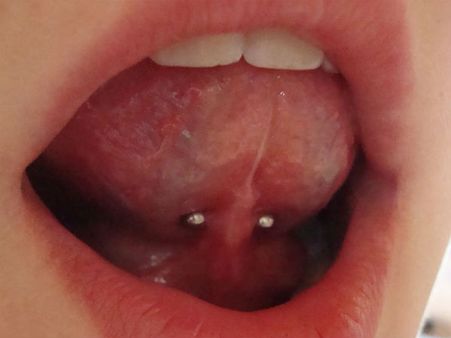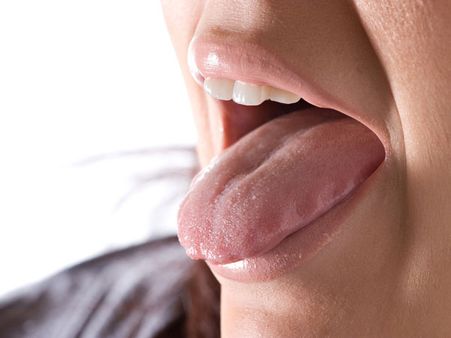Just In
- 9 min ago

- 23 min ago

- 4 hrs ago

- 10 hrs ago

Don't Miss
- Sports
 IPL 2024: LSG vs CSK Award Winners, Man of The Match, Post-Match Presentation, Scorecard & Records
IPL 2024: LSG vs CSK Award Winners, Man of The Match, Post-Match Presentation, Scorecard & Records - News
 Chinese President Xi Jinping Orders Biggest Military Reorganisation Since 2015
Chinese President Xi Jinping Orders Biggest Military Reorganisation Since 2015 - Education
 Exam Pressure Does Not Exist; Studying Punctually is Crucial; Says Aditi, the PSEB 2024 Topper
Exam Pressure Does Not Exist; Studying Punctually is Crucial; Says Aditi, the PSEB 2024 Topper - Movies
 When Karan Johar Revealed Sara Ali Khan And Janhvi Kapoor Once Dated Siblings On KWK 7, Guess Who?
When Karan Johar Revealed Sara Ali Khan And Janhvi Kapoor Once Dated Siblings On KWK 7, Guess Who? - Finance
 Reliance, ONGC, Tata, Adanis: Energy Stocks Didn't Get The Memo Of Bears, Up 12% In 30-Days; 10 Stocks To BUY
Reliance, ONGC, Tata, Adanis: Energy Stocks Didn't Get The Memo Of Bears, Up 12% In 30-Days; 10 Stocks To BUY - Automobiles
 Suzuki Swift Hatchback Scores 4 Star Safety Rating At JNCAP – ADAS, New Engine & More
Suzuki Swift Hatchback Scores 4 Star Safety Rating At JNCAP – ADAS, New Engine & More - Technology
 Dell Introduces AI-Powered Laptops and Mobile Workstations for Enterprises in India
Dell Introduces AI-Powered Laptops and Mobile Workstations for Enterprises in India - Travel
 Journey From Delhi To Ooty: Top Transport Options And Attractions
Journey From Delhi To Ooty: Top Transport Options And Attractions
Oral (Tongue And Lip) Piercing: Risks, Dos, Don’ts And Self-care Tips
You must have seen your friends or colleagues who have done tongue piercing and you might be thinking that it looks so stylish. But before you think of doing one for yourself you should know that tongue piercing comes with many risks. Yes, that's right. This article will talk about the risks and the dos and don'ts of tongue piercing.

What Is Oral Piercing?
It is the piercing of the oral cavity by inserting objects such as rings, studs or pins where both ends of the jewellery are confined to the oral cavity.
There are several types of oral piercings. Tongue piercing is the most common one among the youngsters. It is done by making a small hole in your tongue, lips, cheek or uvula (the flesh that hangs in the back of your throat) and a piece of ball-shaped, cone-shaped or cylindrical-shaped jewellery is inserted in it. Titanium, steel, acrylic and niobium are some of the jewellery materials used for tongue piercing [1].
The most common form of piercing is the barbell piercing which is done by piercing in the midline of the tongue. Tongue piercing is also done on the anterior part of the tongue [1].

Risks Of Tongue Piercing
Tongue piercing causes pain, swelling, haemorrhage and infections like bacterial endocarditis due to the trauma in the mucous membranes. And postoperative complications of tongue piercing include dysphonia (hoarse voice), dysphagia (difficulty in swallowing), difficulty in chewing and contact dermatitis.
Chronic postoperative consequences of oral piercing have been reported such as prolonged bleeding, hyperplastic tissue, hematoma (collection of blood outside the blood vessel), widening of the piercing hole, formation of scar tissues, etc [2], [3].
If sterile equipment is not used, tongue piercing can also increase the risk of infectious diseases such as hepatitis B, C, D, HIV, tetanus and tuberculosis [4].

There are many things that you can do before getting a piercing. Here, we've listed down the dos and don'ts of tongue piercing.

Dos And Don’ts Of Tongue Piercing
Dos
• Choose a qualified piercing professional.
• Ask your friends or people with oral piercing about their experience.
• Know about the procedures of oral piercing.
• The piercer should keep their hands clean, wear fresh disposable gloves and use sterilised tools.
• Clean your mouth thoroughly before getting an oral piercing.
• Choose the right jewellery [5].
• Inform your piercing professional whether you are on medications or have any sort of allergies [5].
• Ensure that you are fit and healthy and don't have a common cold before you go for piercing.
• After piercing, drink cold liquids on the first day and then eat soft foods for few days.
• Apply ice for 30 minutes five times a day.
• Rinse your mouth with a mouthwash after the first day for five times a day for the first ten days.
• Brush and floss your teeth twice a day.
• Rinse your mouth properly after every meal.
13 Home Remedies To Get Rid Of Tongue Blisters

Don’ts
• Don't drink alcohol, caffeinated and fizzy drinks.
• Avoid smoking.
• Avoid putting your hands in the mouth to limit the spread of germs.
• Do not drink hot beverages like tea, coffee or hot chocolate.
• Avoid the intake of aspirin.
• Avoid kissing or engaging in other oral activities.
• Don't use a harsh mouthwash.
• Don't use tongue scrapers.
• Avoid playing with your jewellery.


What Should A Professional Piercer Check before Piercing?
A professional piercer will locate your blood vessels with the help of a blue light. This will help them to know the positioning of your blood vessels to prevent them from damage.
The piercing should never be too close to your teeth and tip of the tongue. The jewellery is then inserted from the dorsal (top surface of the tongue) to the ventral (under surface of the tongue) surfaces of the tongue [3].

Self-care Tips After Tongue Piercing
The healing process takes six to eight weeks and during this time you should keep the following things in mind:
•
Practice
good
oral
hygiene.
•
Go
for
regular
dental
check-ups.
•
Replace
your
jewellery
with
another
one.
•
Watch
out
for
signs
of
infections
like
redness,
swelling,
a
bad
mouth
odour,
rash
and
fever.

Who Shouldn’t Get A Tongue Piercing?
•
If
you
have
a
bleeding
disorder
or
taking
blood-clotting
medications.
•
Pregnant
women
•
If
your
skin
scars
badly.
•
If
you
have
an
open
wound.
•
If
you
recently
had
a
dental
surgery.
•
People
with
an
immune
disorder.
•
People
who
have
problems
in
the
heart
valves
[3]
To Conclude...
Choose a true licensed piercing professional if you are thinking of doing an oral piercing. If you experience continuous bleeding and other serious infections, consult a doctor right away.
-
 healthHow Often Should You Clean Your Toothbrush? Methods To Clean
healthHow Often Should You Clean Your Toothbrush? Methods To Clean -
 oral careExpert Article On Loose Teeth: When Should You Be Worried About Your Shaky Teeth?
oral careExpert Article On Loose Teeth: When Should You Be Worried About Your Shaky Teeth? -
 wellnessCan HIV Transmit Through Oral Sex?
wellnessCan HIV Transmit Through Oral Sex? -
 healthMyths Vs Facts: Can Poking Your Gums With Your Tongue Cause Cancer?
healthMyths Vs Facts: Can Poking Your Gums With Your Tongue Cause Cancer? -
 healthIs Tongue Scraping Good For Oral Health?
healthIs Tongue Scraping Good For Oral Health? -
 healthTongue Is The Mirror Of Your Overall Health: Tongue Problems, How To Clean Your Tongue Effectively
healthTongue Is The Mirror Of Your Overall Health: Tongue Problems, How To Clean Your Tongue Effectively -
 faith mysticismKali Puja 2022: Why Does Goddess Kali Protrude Her Tongue Out?
faith mysticismKali Puja 2022: Why Does Goddess Kali Protrude Her Tongue Out? -
 disorders cureWorld Cancer Day 2022: What Is Tongue Cancer? Know More About Its Causes, Symptoms And Treatment
disorders cureWorld Cancer Day 2022: What Is Tongue Cancer? Know More About Its Causes, Symptoms And Treatment -
 disorders cureDry Mouth (Xerostomia): Causes, Symptoms, Diagnosis, Treatment And Prevention
disorders cureDry Mouth (Xerostomia): Causes, Symptoms, Diagnosis, Treatment And Prevention -
 babyBreastfeeding A Tongue-tied Baby: 6 Things You Need To Know
babyBreastfeeding A Tongue-tied Baby: 6 Things You Need To Know -
 disorders cureHome Remedies To Treat White-Coated Tongue
disorders cureHome Remedies To Treat White-Coated Tongue -
 wellnessThings The Colour Of Your Tongue Is Trying To Tell You About Your Health
wellnessThings The Colour Of Your Tongue Is Trying To Tell You About Your Health


 Click it and Unblock the Notifications
Click it and Unblock the Notifications



